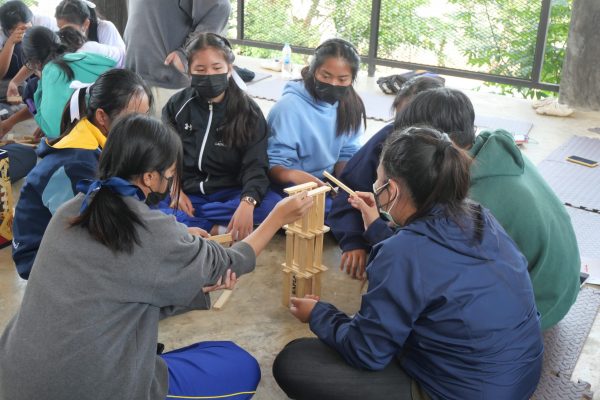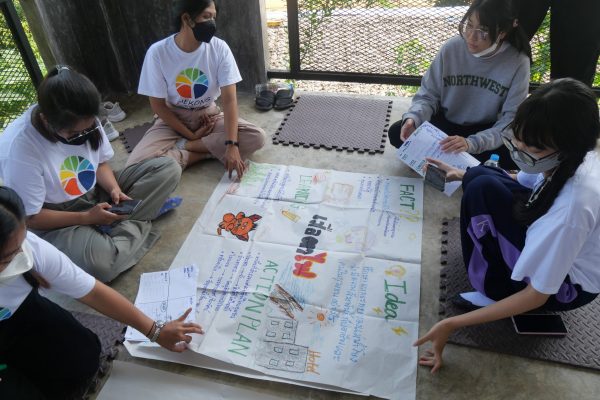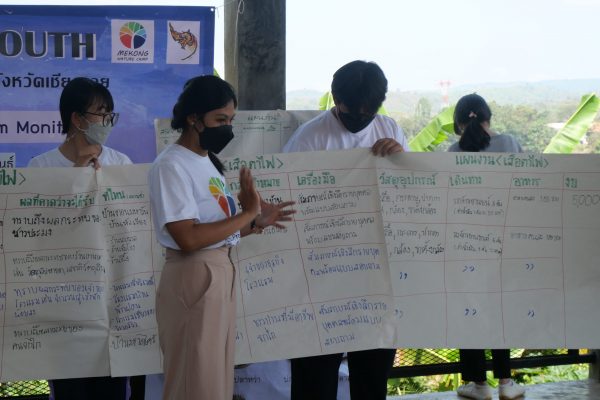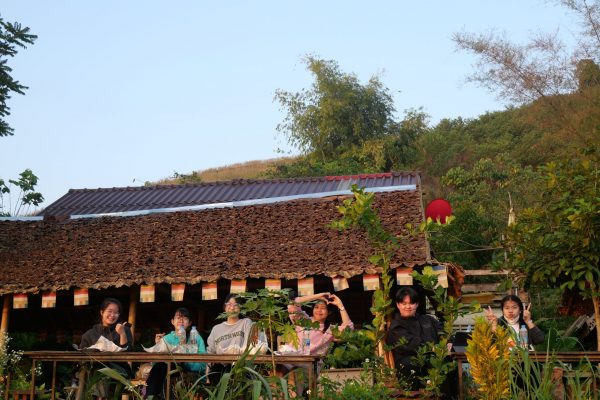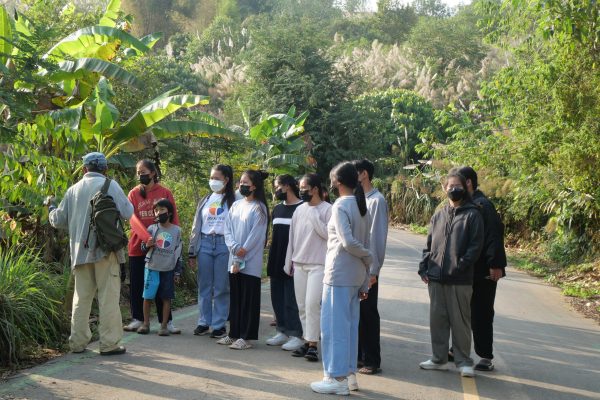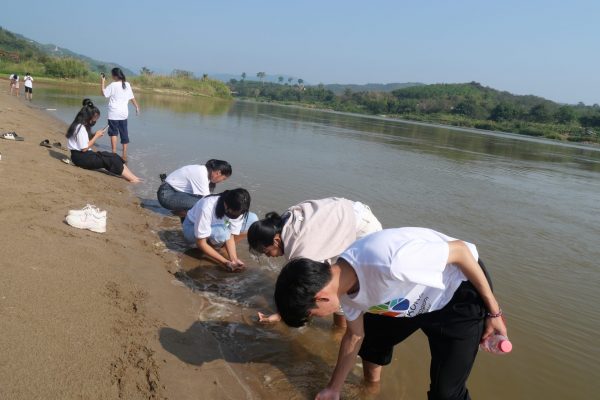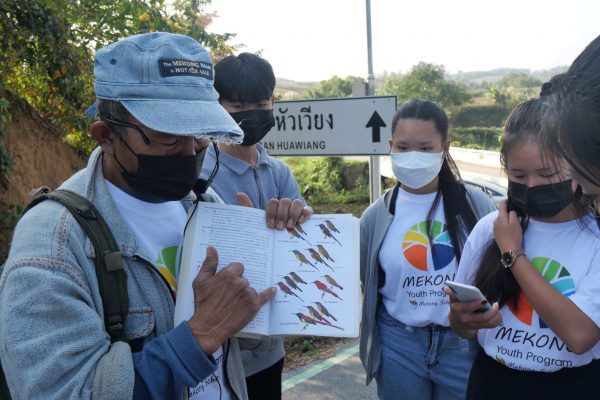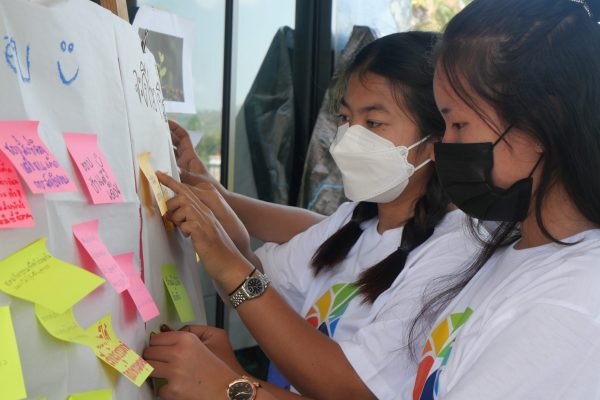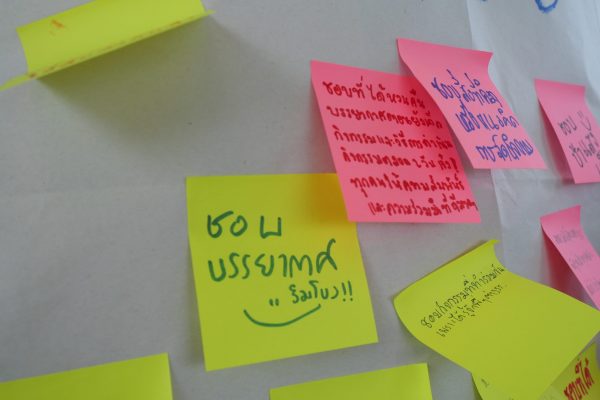24-25th February, 2022
The Mekong School: Institute of Local Knowledge
The Mekong Dam Monitor activity was organized by Chiang Khong Conservation Group under the Program of Youth and Community Empowerment and Capacity Building for Monitoring, Protection, and Health of the Mekong (Mekong Youth Program) in Chiang Rai Province, Thailand. This program is a continuation activity of the elders mentoring children to draw dreams about the past and the future, and the group has been accepting applications for students who are interested in joining the project. The target group is students in four local secondary schools, namely: Ban Saeo Wittayakhom School, Huay So Wittayakhom Rajamangalaphisek School, Chiangkhong Wittayakhom School, and Ban Huai Luek School.
But, with the COVID-19 situation, the resulting situation is that all four schools have been unable to organize activities at the same time. Therefore, the Mekong Dam Monitor activity on February 24-25, 2022 was held at the Mekong School: Institute of Local Knowledge had students join from just two schools – 10 students from Chiang Khong Wittayakhom School, and eight students from Huai So Wittayakhom Rajamangalaphisek School, along with members of the Rak Chiang Khong group who facilitated the activity. Volunteers and other observers were also included.
In collaboration with Brian Eyler, Director of the Stimson Center Southeast Asia Program, The Mekong Dam Monitor activity takes students on a website to track changes and share stories of the Mekong River. The website has information about the water situation, alerts for the water level, and historical water level meters. This website is very useful for people in the Mekong River Basin to reference information and study scientific data to answer questions they may have about the changes in the river.

Consequently, after the students learned about the website, there was a need for them to better see the impacts of change and what remains of the Mekong River. Therefore, an informal forum was set up to invite a knowledgeable person or a local philosopher – someone who was born and raised on the Mekong River – to come and talk about the past with the children.
In this stage, Khru Tee (Niwat Roykaew), acted as the facilitator and invited Yai Saengnuan Boonyang, 72 years old, a villager of Haad Krai to speak. They told the children about the way of life in the days when they were still “La-On” (as a child), and how they lived on the Mekong River, how they made a living. There was also Uncle Pum Bunnak, who has made a living in various occupations and has been with the Mekong River his whole life. Uncle Pum talked about the way of catching Mekong Giant catfish, the abundance and natural state of the Mekong River, and the interdependent relationship between people and rivers from the past until the present. These things have now changed.
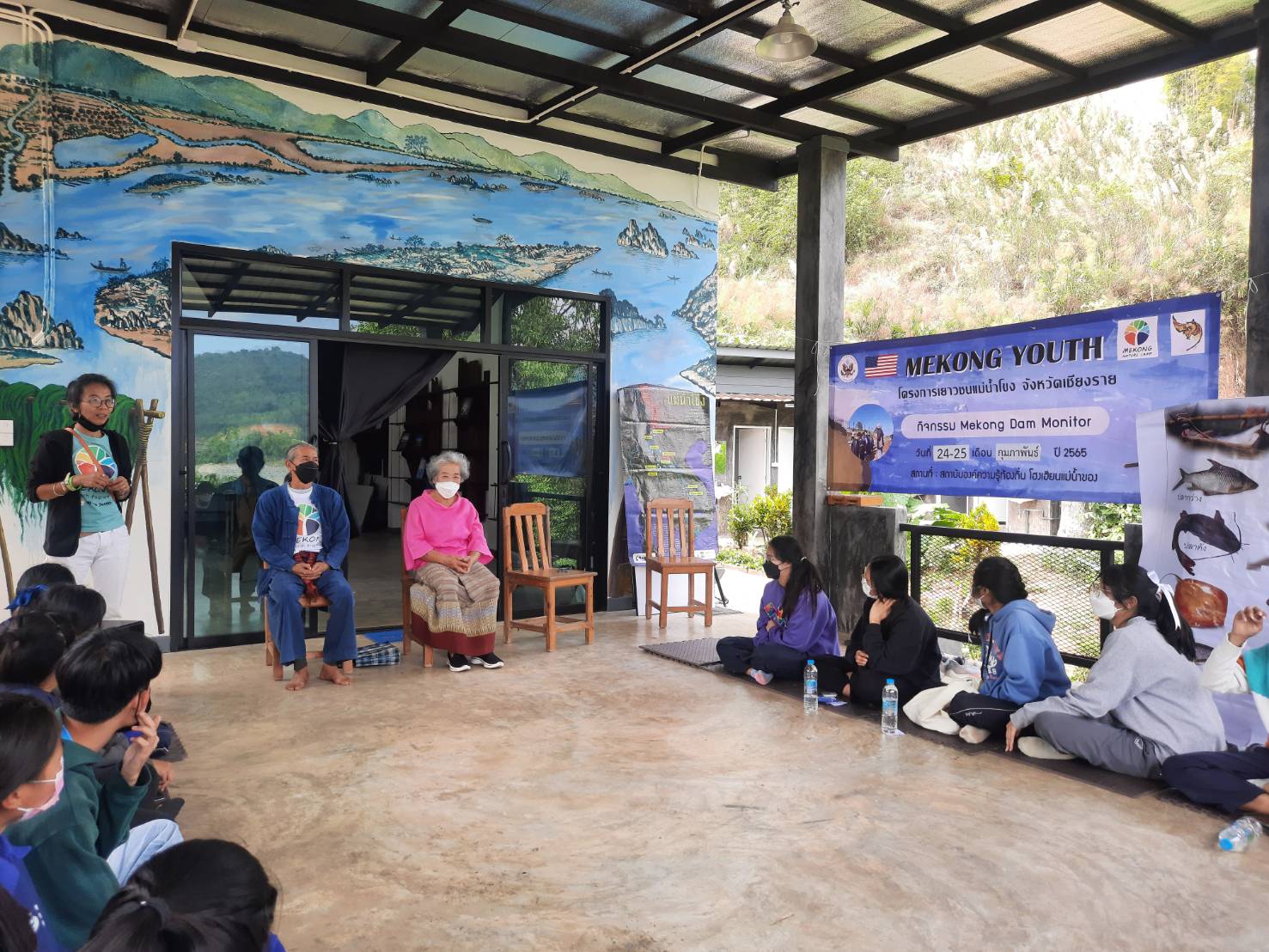

After that, Khru Manao-Suppawaj PhomTun, the leader of the Lanna teacher’s group, led the students in reviewing their feelings from listening to stories from the elders, before introducing them to the content and design of the Mekong River Tributary Educational Project. By using a process called 5P, the students are able to think through local issues and topics of interest, and create projects that will benefit both themselves and the public. After identifying their point of interest, each group has to come up with a work plan, enter the details of the job, including the budget that will be required, resulting in a rough outline of the plan that may be adjusted as appropriate for the situation that occurs.
In the morning of the 2nd day, the final activity is about children’s ecological rights. Chak Kinisi or Grandpa Chak, who is a professional bird-watching guide also has knowledge of botanicals, trees and other parts of the environment, took everyone on a journey to experience nature. The environment in the morning invited students to connect themselves with nature, to listen to nature and practice observing things around you, using your feelings while walking. The destination was a sandy beach on the Mekong River, an ecosystem that is disappearing with the advancement of development. The students saw many changes and the consequences that followed.

After completing the activity, everyone was allowed to reflect on their own feelings. Many people reflected that every time they get new knowledge, it’s like they are growing up. Some people never get close to or learn things about their hometown, but when they joined the activity, they realized that there was more than meets the eye in their own village and saw many things that were about to change.

